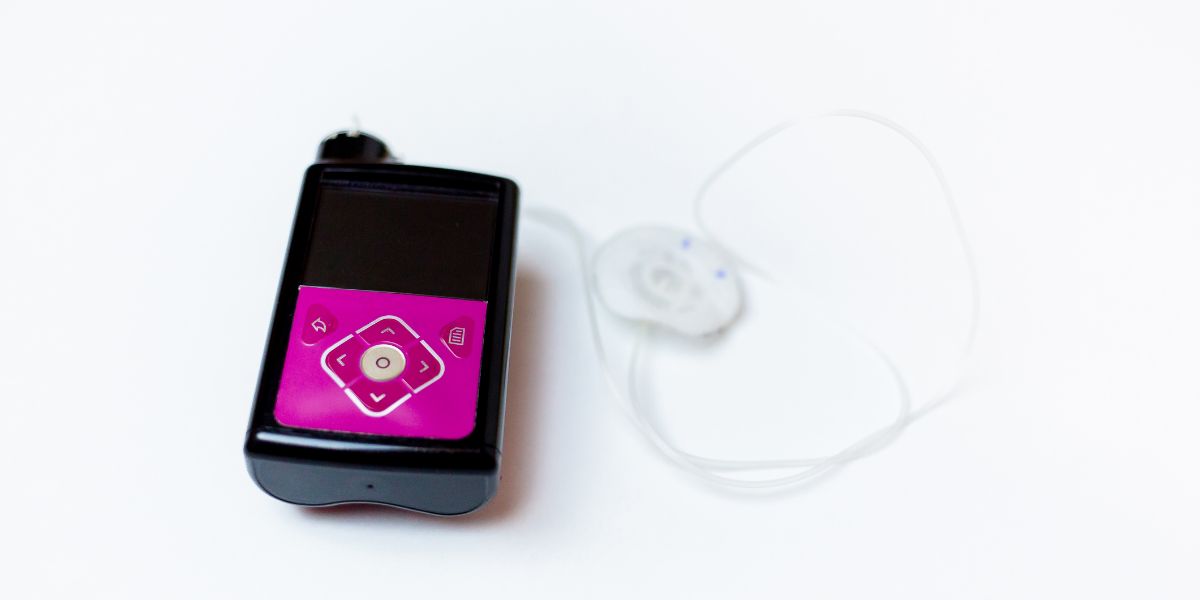The National Institute of Health Care and Excellence (NICE) has announced that hybrid closed-loop systems will be rolled out to some individuals with type 1 diabetes next year, with plans to roll it out further in the future.
In the new guidance, NICE has highlighted which individuals with type 1 diabetes are eligible for hybrid closed-loop technology in England and Wales.
According to NICE, hybrid-closed loop technology will be offered to thousands of people living with type 1 diabetes over the next five years.
- Artificial Pancreas: Hybrid closed-loop system gets NHS green light
- Hybrid-closed loop insulin system safe and effective for children with type 1 diabetes
The new guidance shows that hybrid closed-loop systems will be offered to adults living with type 1 diabetes who have an HbA1c of 58 mmol/mol (7.5%) or higher, or have disabling hypoglycaemia, despite best possible management with at least one of the following:
- Continuous subcutaneous insulin infusion (CSII) (i.e. an insulin pump)
- Intermittently scanned continuous glucose monitoring (Flash)
- Real-time continuous glucose monitoring (CGM).
Under-18s living with type 1 diabetes and individuals with the condition who are pregnant or planning to become pregnant will also be eligible for hybrid closed-loops.
Otherwise known as an artificial pancreas, a hybrid closed-loop system involves using an insulin pump that communicates with a continuous glucose monitor (CGM) to adjust insulin levels.
This works by a computer algorithm measuring how much insulin the user needs based on blood sugar readings so the pump can automatically give accurate and timely doses.
Previous research has revealed that hybrid closed-loops can enhance the lives of people with type 1 diabetes by improving their blood sugar levels, as well as reducing hypos and making self-managing the condition easier.
- People with type 1 diabetes should ‘exercise caution’ when using fitness video games
- Baricitinib shows promise in delaying progression of type 1 diabetes
- Stem-cell treatment a significant step forward in fight against type 1 diabetes
As local health systems decide on their plans to offer hybrid closed-loop systems to eligible people in their area, the rollout is expected to take place in 2024 in England.
Colette Marshall, Chief Executive of Diabetes UK, said: “Hybrid closed-loop technology has the potential to transform the lives of many people with type 1 diabetes, improving both health and quality of life.
“We’re excited to welcome these recommendations which broaden access to the technology for key groups including children and young people recognising our comments to the consultation earlier this year.”
She added: “This is a breakthrough, and we’re incredibly proud of Diabetes UK’s legacy of research in this field, which dates back to the 1970s.
“It is exciting to be in a position where these life-changing systems are being rolled out on the NHS in England and Wales.
“However, funding to rollout this technology to the people that need it is of paramount importance and we re-iterate the campaign call we have made for the government and the NHS to agree this.
“We’ll also be working with the NHS to help ensure that everyone who could benefit from this technology has access to it as soon as possible in the phased rollout that has been agreed to achieve this.”
- Routine finger-prick blood test could be used to identify toddlers’ risk of type 1 diabetes
- Groundbreaking study to screen 20,000 adults for type 1 diabetes
- Type 1 diabetes: weekly insulin injections could reduce the burden of daily jabs
Professor Partha Kar, National Specialty Adviser for Diabetes at NHS England, said: “This is amazing news for people living with type 1 diabetes and this announcement can be made possible thanks to the hard work of the NHS, once again trialling and testing the best and latest innovations for the benefit of our patients.
“This tech might sound sci-fi like but it will have a dramatic impact on the quality of people’s lives, not to mention outcomes – it is as close to the holy grail of a fully automated system as science can provide at the moment, where people with type 1 diabetes can get on with their lives without worrying about glucose levels or medication.”
Read the NICE guidance here.




